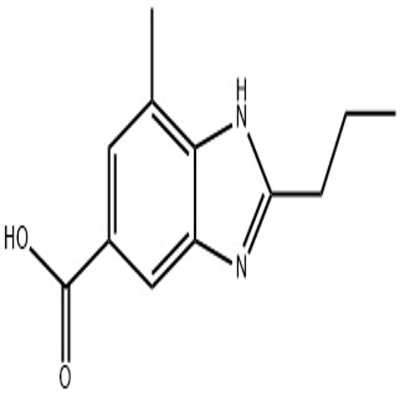-
Categories
-
Pharmaceutical Intermediates
-
Active Pharmaceutical Ingredients
-
Food Additives
- Industrial Coatings
- Agrochemicals
- Dyes and Pigments
- Surfactant
- Flavors and Fragrances
- Chemical Reagents
- Catalyst and Auxiliary
- Natural Products
- Inorganic Chemistry
-
Organic Chemistry
-
Biochemical Engineering
- Analytical Chemistry
-
Cosmetic Ingredient
- Water Treatment Chemical
-
Pharmaceutical Intermediates
Promotion
ECHEMI Mall
Wholesale
Weekly Price
Exhibition
News
-
Trade Service
2,3-Dihydroxyquinoxaline, also known as DHQ, is an organic compound with a unique structure and properties that make it a valuable chemical in various industries.
This compound has a wide range of applications in the chemical industry and continues to be an important chemical for many chemical reactions.
One of the most significant applications of 2,3-dihydroxyquinoxaline is in the field of organic synthesis.
DHQ is used as a versatile building block for the synthesis of various organic compounds.
This compound can react with a variety of other organic compounds to form new and complex molecules.
For example, DHQ can be used to synthesize new polymers, dyes, pigments, and pharmaceuticals.
Another application of DHQ is in the field of materials science.
DHQ can be used as an intermediate in the production of various polymer materials, such as polyurethanes and polyesters.
These polymers have a wide range of applications, including in the production of coatings, adhesives, and textiles.
2,3-dihydroxyquinoxaline is also used in the production of cosmetics and personal care products.
DHQ can be used as a UV absorber in sunscreen products to protect the skin from harmful UV radiation.
DHQ is also used as a preservative in personal care products to prevent the growth of bacteria and fungi.
In the field of pharmaceuticals, DHQ is used as an intermediate in the production of certain drugs.
DHQ can be transformed into drugs that are used to treat various diseases, including cancer and Alzheimer's disease.
DHQ can also be used as an intermediate in the production of enzymes, which are used in various biotechnology applications.
DHQ is also used in the field of biotechnology for various applications.
DHQ can be used as a biodegradable polymer in the production of microbeads for various biotechnology applications, such as in DNA sequencing and protein crystallization.
DHQ is also used as a building block for the production of bioconjugates, which are used in various biological applications, such as in immunodiagnostics and imaging.
DHQ is also used in the production of various electronic components, such as displays and batteries.
DHQ can be used as a raw material in the production of electrochromic displays, which are used in various electronic devices, such as smartphones and laptops.
DHQ can also be used in the production of lithium-ion batteries, which are widely used in portable electronic devices and electric vehicles.
In addition to the above applications, DHQ is also used in the production of various other chemicals, such as agrochemicals and veterinary drugs.
DHQ can be used as an intermediate in the production of various herbicides, insecticides, and fungicides, which are used in agriculture to protect crops from various pests and diseases.
DHQ can also be used in the production of veterinary drugs, which are used to treat various animal diseases.
In conclusion, 2,3-dihydroxyquinoxaline is a versatile chemical with a wide range of applications in various industries, including the chemical, materials, pharmaceutical, biotechnology, electronic, and agriculture industries.
The unique properties of DHQ make it an important building block for the synthesis of various organic compounds, and a valuable intermediate in the production of various chemicals and materials.
The use of DHQ in various industries continues to grow, and it is expected to remain an important chemical in the future.





![benzyl N-{2-[4-(4,4,5,5-tetramethyl-1,3,2-dioxaborolan-2-yl)phenyl]ethyl}carbamate](https://file.echemi.com/fileManage/upload/goodpicture/20210823/m20210823171124543.jpg)

